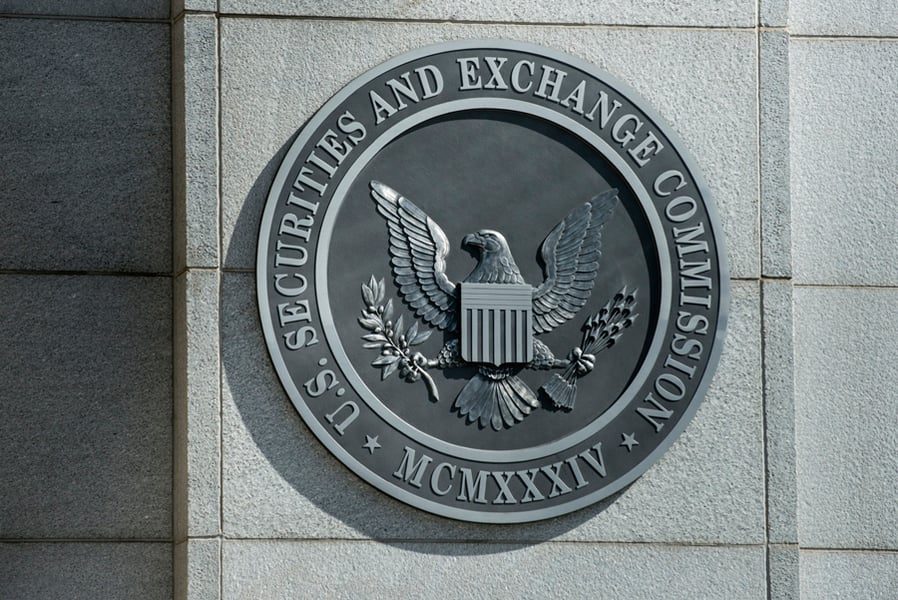

A new executive order from former President Donald Trump could reshape the regulatory landscape by requiring independent agencies, including the Securities and Exchange Commission, to seek White House approval before issuing new rules.
The order, issued within a month after Trump took the Oval Office for the second time, directs agencies to align their strategic plans with White House priorities, raising concerns about potential political influence over regulatory decision-making.
The expansion of executive oversight of agencies that have historically operated with autonomy raises questions about the SEC's ability to police Wall Street without political interference, one observer told Barron's.
“The position of the executive order is that independent agencies are not independent and are subject to complete White House control,” said John Bergmayer, legal director at Public Knowledge, a consumer advocacy group. “So yes, they would maintain that the president can control and direct enforcement actions.”
Jorge Tenreiro, the top litigator who spearheaded the Gary Gensler-led SEC's enforcement efforts against what they viewed as wayward crypto firms, was reportedly relegated into another role within the agency's information technology office in early February.
The new directive from Trump extends the White House’s authority by placing the Office of Management and Budget in charge of reviewing agency funding and regulatory proposals. While the Federal Reserve and its control over monetary policy are explicitly exempt from the rulemaking requirement, the SEC and other agencies such as the Federal Communications Commission will be subject to the new oversight process.
The order also comes on the heels of reports that DOGE, the cost-cutting unit tasked with reducing costs across the federal system, would be extending its efforts to the SEC in the coming days.
Although the fact sheet outlining the order does not mention enforcement policies, some observers believe the move could indirectly influence how agencies police financial markets. Reports indicate that SEC enforcement attorneys may now be required to seek approval from political appointees before initiating formal investigations.
Igor Rozenblit, managing partner at the regulatory consultancy Iron Road Partners, noted that White House oversight of agencies’ strategic plans and priorities “could include opining on an enforcement approach.”
“More importantly, it sounds like there will be an ongoing conversation between the SEC and the White House, which could open the door for the White House to intervene in specific enforcement matters,” he told Barron's.
The White House framed the order as a means of holding agencies accountable and preventing regulatory overreach – a talking point typically argued by industry groups and associations – arguing that independent agencies issue rules with broad economic implications. Bergmayer pushed back on that rationale, saying it "is, on its face, absurd.
“Agencies – like presidents are supposed to – regularly answer to Congress, who controls their budget, and can override any of their actions,” he told Barron's adding that independent agencies already operate under established legal constraints, including judicial review and the Administrative Procedure Act.
An analyst at policy research firm Capital Alpha argued that Trump's new order might be to provoke a legal battle that would ultimately end up in the Supreme Court.
"The White House and conservatives not only expect, but want, legal challenges to the executive order, Katz said in an email to Fortune. “They would like a Supreme Court ruling that further solidifies executive branch authority over the agencies.”

A new proposal could end the ban on promoting client reviews in states like California and Connecticut, giving state-registered advisors a level playing field with their SEC-registered peers.

Morningstar research data show improved retirement trajectories for self-directors and allocators placed in managed accounts.

Some in the industry say that more UBS financial advisors this year will be heading for the exits.

The Wall Street giant has blasted data middlemen as digital freeloaders, but tech firms and consumer advocates are pushing back.

Research reveals a 4% year-on-year increase in expenses that one in five Americans, including one-quarter of Gen Xers, say they have not planned for.
Orion's Tom Wilson on delivering coordinated, high-touch service in a world where returns alone no longer set you apart.
Barely a decade old, registered index-linked annuities have quickly surged in popularity, thanks to their unique blend of protection and growth potential—an appealing option for investors looking to chart a steadier course through today's choppy market waters, says Myles Lambert, Brighthouse Financial.
